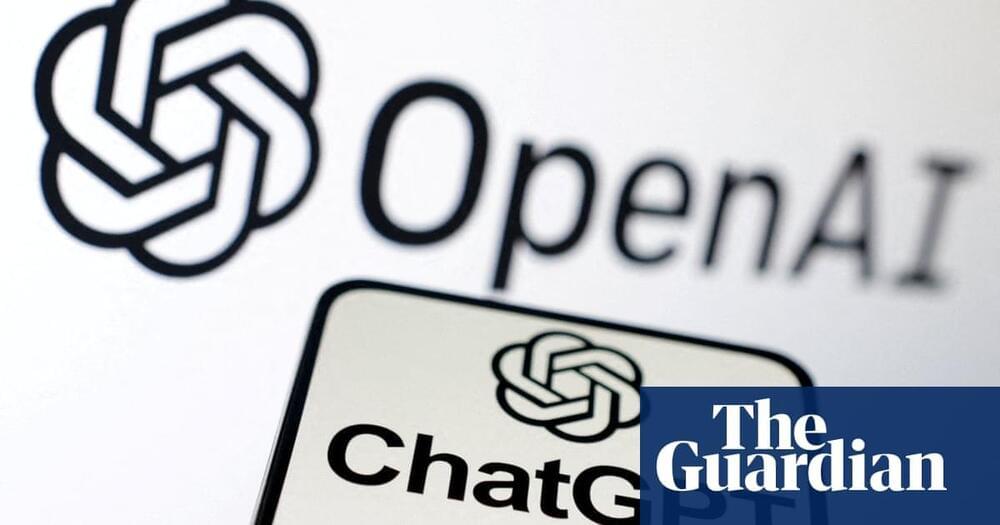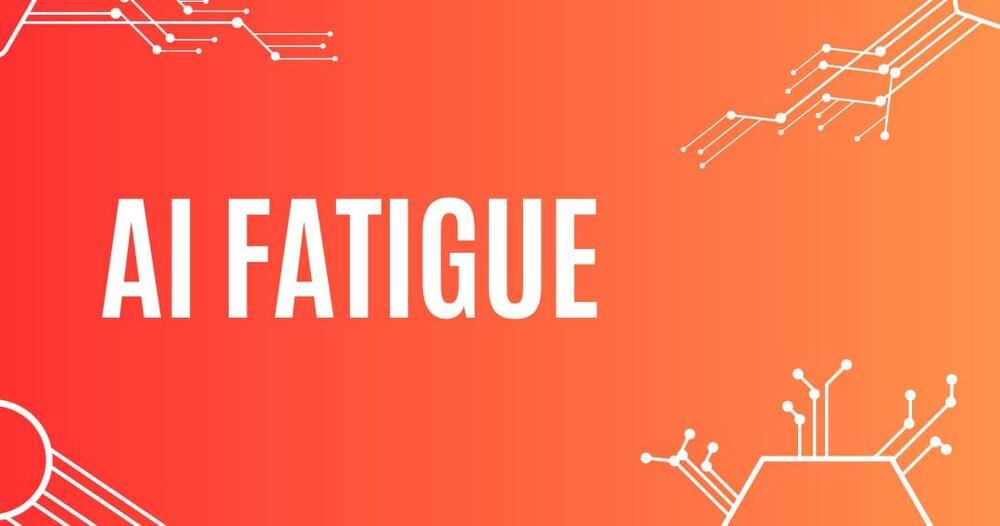The supernova, which was first discovered in 1987, has a keyhole-like formation, full of clumpy gas and dust, at its center.





The Guardian has blocked OpenAI from using its content to power artificial intelligence products such as ChatGPT. Concerns that OpenAI is using unlicensed content to create its AI tools have led to writers bringing lawsuits against the company and creative industries calling for safeguards to protect their intellectual property.
The Guardian has confirmed that it has prevented OpenAI from deploying software that harvests its content.


As humanity’s gaze turns towards the stars, one name stands at the forefront of the space exploration revolution: Elon Musk’s SpaceX. Among its many ambitious projects, the SpaceX Starship promises to reshape our understanding of interplanetary travel. This colossal 9-meter diameter rocket has captured our imagination with the grand vision of shuttling thousands of people on a six-month journey to Mars. But what lies within this futuristic vessel? What can we expect from the spaceship interior that aims to make long-duration space travel a reality?
Historically, our mental image of a spacecraft has often been based on cramped capsules, such as the iconic Apollo 11, Soyuz, or Dragon. These designs, while functional, have offered little in the way of comfort. Even modern incarnations like the Orion spacecraft still lack the headroom to stand upright inside the Command Module. With its larger size, the space shuttle hinted at more livable conditions, but it still fell short of providing ample space for extended journeys.
Enter the SpaceX Starship—a towering, 9-meter diameter rocket that evokes images of Flash Gordon’s futuristic transport. Elon Musk’s vision of a vessel capable of shuttling thousands to Mars within six months is a compelling proposition. However, spending half a year in the confined space of a metal box hurtling through an interplanetary void is daunting, even if the box is quite spacious. As we anticipate the Starship interior, our expectations are high, and speculation runs rampant about what life onboard might entail.

Artificial Intelligence has transformed how we live, work, and interact with technology. From voice assistants and chatbots to recommendation algorithms and self-driving cars, AI has suddenly become an integral part of our daily lives, just a few months after the release of ChatGPT, which kickstarted this revolution.
However, with the increasing prevalence of AI, a new phenomenon called “AI fatigue” has emerged. This fatigue stems from the overwhelming presence of AI in various aspects of our lives, raising concerns about privacy, autonomy, and even the displacement of human workers.
AI fatigue refers to the weariness, frustration, or anxiety experienced by individuals due to the overreliance on AI technologies. While AI offers numerous benefits, such as increased efficiency, improved decision-making, and enhanced user experiences, it also presents certain drawbacks. Excessive dependence on AI can lead to a loss of human agency, diminishing trust in technology, and a feeling of disconnection from the decision-making process.
Michael Levin is a Distinguished Professor in the Biology department at Tufts University. He holds the Vannevar Bush endowed Chair and serves as director of the Allen Discovery Center at Tufts and the Tufts Center for Regenerative and Developmental Biology. To explore the algorithms by which the biological world implemented complex adaptive behavior, he got dual B.S. degrees, in CS and in Biology and then received a PhD from Harvard University. He did post-doctoral training at Harvard Medical School, where he began to uncover a new bioelectric language by which cells coordinate their activity during embryogenesis. The Levin Lab works at the intersection of developmental biology, artificial life, bioengineering, synthetic morphology, and cognitive science.
✅EPISODE LINKS:
👉Round 1: https://youtu.be/v6gp-ORTBlU
👉Mike’s Website: https://drmichaellevin.org/
👉New Website: https://thoughtforms.life.
👉Mike’s Twitter: https://twitter.com/drmichaellevin.
👉Mike’s YouTube: https://youtube.com/@drmichaellevin.
👉Mike’s Publications: https://tinyurl.com/yc388vvk.
👉The Well: https://www.youtube.com/watch?v=0a3xg4M9Oa8 & https://youtu.be/XHMyKOpiYjk.
👉Aeon Essays: https://aeon.co/users/michael-levin.
✅TIMESTAMPS:
0:00 – Introduction.
1:27 – The Prisoner’s Dilemma (Game Theory applied to Life)
7:55 – Computational Boundary of the Self.
10:17 – “Goal States” & “Cognitive Light Cones”
13:55 – To Naturalise Cognition.
19:00 – The Hard Problem of Consciousness.
23:10 – Defining Consciousness.
27:14 – The Field of Diverse Intelligence.
43:25 – Who inspired Mike within his field.
46:52 – Is Mike a Panpsychist?
52:09 – Thoughts on Illusionism.
55:44 – Links to IIT
57:56 – Technological Approach to Mind Everywhere (TAME 2.0)
1:02:14 – Proof of Humanity Certification.
1:10:00 – Phase Transitions in Mathematics.
1:15:26 – Bioelectric Medicine.
1:21:06 – Can Cells Think? What is the Self? Is Man a Machine?
1:28:55 – Metacognition & Cloning.
1:35:49 – Teleology, Teleonomy & Teleophobia.
1:50:08 – All Intelligence is Collective Intelligence.
1:54:33 — Conclusion.
Video Title: What is The Field of Diverse Intelligence? Hacking the Spectrum of Mind & Matter | Michael Levin.
🔔Ready to change the way you think about the mind-body dichotomy? Join Dr. Tevin Naidu on a quest to conquer the mind-body problem. Subscribe and take one step closer to the Mind-Body Solution: https://t.ly/ASNw6
⭐ ⭐ ⭐ ⭐ ⭐ Audio Podcast is currently on your favorite platforms:
Plenary Talk by Michael Levin on “Non-neural, developmental bioelectricity as a precursor for cognition: Evolution, synthetic organisms, and biomedicine” at the Virtual Miniature Brain Machinery Retreat, September 16, 2021. Introduction by William Baker.
Michael Levin.
Director of the Allen Discovery Center.
Tufts University.
Sponsored by the National Science Foundation, the University of Illinois at Urbana-Champaign, and the Beckman Institute for Advanced Science & Technology. This video was supported by the National Science Foundation under grant 1735252.
Welcome to another exciting episode of our podcast series, where we dive deep into the world of science and innovation! In today’s episode, we have the privilege of interviewing Prof. Michael Levin, a renowned researcher in the fields of bioelectricity, regenerative biology, and biophysics.
Prof. Levin is the director of the Allen Discovery Center at Tufts University and has been making groundbreaking discoveries that are revolutionizing the field of regenerative medicine. His research focuses on understanding the electrical communication within and between cells, and how this communication can be harnessed for tissue repair and regeneration.
In this thought-provoking conversation, we cover:
🔹 The fundamentals of bioelectricity and its role in cellular communication.
🔹 How bioelectric signals can be manipulated to control cell behavior.
🔹 Prof. Levin’s pioneering work in regenerative medicine and tissue engineering.
🔹 The potential applications of bioelectricity in treating various diseases and conditions.
🔹 Ethical considerations and the future of bioelectricity in healthcare.
Join us for this insightful discussion and learn how Prof. Levin’s research is paving the way for innovative solutions in regenerative medicine. Don’t forget to subscribe to our channel for more fascinating interviews with leading experts in science and technology!